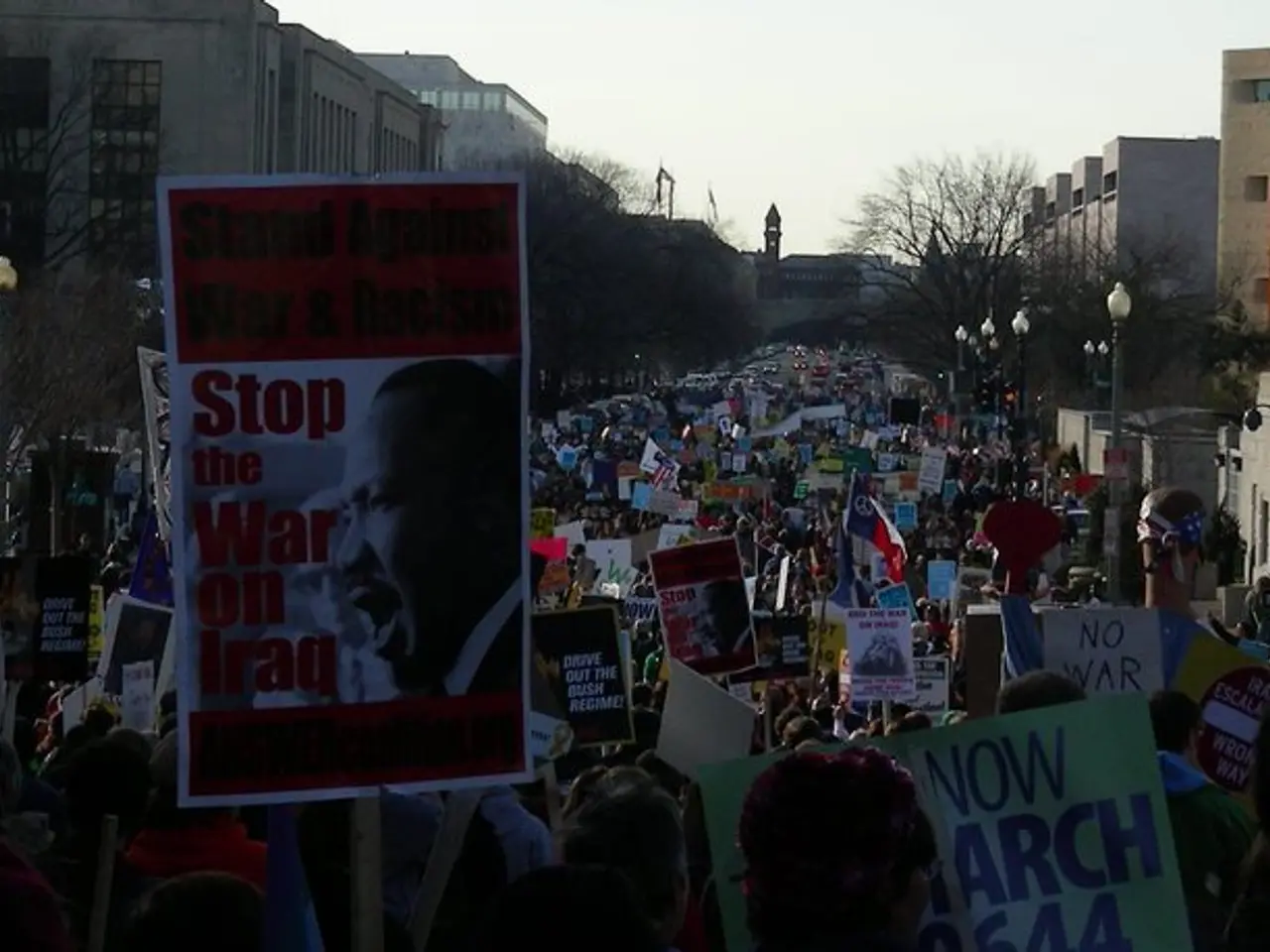"Israel boycott movement expands with participation from Massive Attack"
In a recent development, British band Massive Attack has asked their label to remove all their songs from Spotify, citing investments in a European defence start-up by the CEO and co-founder of Spotify, Daniel Ek. The move is part of a larger initiative called 'No Music for Genocide', a collective of musicians inspired by 'Film Workers for Palestine'.
The group, which includes over 400 artists and labels, has called for a cultural boycott of Israel due to the ongoing war in Gaza. Notable musicians supporting this campaign include Massive Attack, Carole King, Japanese Breakfast, Rina Sawayama, and Danish artist MO.
The band's decision to withdraw their music from Spotify is not a new stance for them. Massive Attack, known for their anti-war sentiments, view their fans' hard-earned money and the creative endeavours of musicians as unwittingly funding lethal, dystopian technologies.
Daniel Ek runs a private equity company that led a consortium of investors which injected 600 million euros ($700 million) into European military artificial intelligence and drone maker Helsing. Helsing's technology is deployed in European countries for deterrence and defense against the Russian aggression in Ukraine. However, the company has stated that its technology is not being used outside of Europe.
The cultural boycott movement is not exclusive to the music industry. The group 'No Music for Genocide' provides advice to artists on how to geo-block their songs, a practice that has been adopted by the members of the group.
Recently, top British artists including indie band Bastille, Brian Eno, and DJ Jamie xx performed at a major concert in London called 'Together for Palestine'. The event, which featured top British artists, was held in London and aimed to raise awareness about the ongoing conflict in Gaza.
Massive Attack, who took part in this concert, have cited historical precedents such as the cultural boycott of apartheid-era South Africa as inspiration for their actions against Israel. They believe that complicity with the Israeli government is unacceptable, given the ongoing conflict and treatment of Palestinians.
It is important to note that a spokesperson for Spotify has clarified that Spotify and Helsing are separate companies.
In conclusion, the cultural boycott movement, spearheaded by groups like 'No Music for Genocide', continues to gain momentum as artists and labels join the cause to protest Israel's military actions and treatment of Palestinians. The movement serves as a call for artists to consider the ethical implications of their partnerships and the impact their music may have on global conflicts.
Read also:
- United States tariffs pose a threat to India, necessitating the recruitment of adept negotiators or strategists, similar to those who had influenced Trump's decisions.
- Weekly happenings in the German Federal Parliament (Bundestag)
- Southwest region's most popular posts, accompanied by an inquiry:
- Discussion between Putin and Trump in Alaska could potentially overshadow Ukraine's concerns








